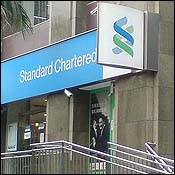 Here’s a good rule of thumb: Write all emails as if the distribution list included the entire planet because you never know when any given might come back to haunt you. If a certain executive at Standard Chartered had followed that rule, that bank might be worth 17 billion dollars more than it is today after the New York Department of Financial Services charged it with facilitating banking transactions for Iran. According to the Order released by the NYDFS, a Standard Chartered executive responded to concerns about the banks Iranian dealings with this pithy quote: “You f—ing Americans. Who are you to tell us, the rest of the world, that we‟re not going to deal with Iranians?†The New York regulators could scarcely make it through eight paragraphs of the Order before showcasing that gem, which they characterized as showing “contempt” for U.S. regulations and which led them to call Standard Chartered a “rogue” bank.
Here’s a good rule of thumb: Write all emails as if the distribution list included the entire planet because you never know when any given might come back to haunt you. If a certain executive at Standard Chartered had followed that rule, that bank might be worth 17 billion dollars more than it is today after the New York Department of Financial Services charged it with facilitating banking transactions for Iran. According to the Order released by the NYDFS, a Standard Chartered executive responded to concerns about the banks Iranian dealings with this pithy quote: “You f—ing Americans. Who are you to tell us, the rest of the world, that we‟re not going to deal with Iranians?†The New York regulators could scarcely make it through eight paragraphs of the Order before showcasing that gem, which they characterized as showing “contempt” for U.S. regulations and which led them to call Standard Chartered a “rogue” bank.
Leaving aside the email, which caused the NYDFS to go all Hulk on Standard Chartered, it seems that l’affaire Standard Chartered is more sizzle than steak. What most of the tut-tutting press accounts seem to have missed is that the large bulk of the transactions pointed to by the NYDFS were perfectly legal even though they did involve clearing dollar transactions for the Iranians. Up until November 6, 2008, section 560.516(a)(1) of the Iranian Transaction Regulations promulgated by the Office of Foreign Assets Control (“OFAC”) explicitly permitted so-called U-turn transactions by which foreign non-Iranian banks were allowed to clear U.S. dollar transactions for Iranians through U.S. correspondent accounts.
The NYDFS focuses mostly on Standard Charter having removed references to Iran in wire instructions although it is not at all clear that this was illegal if the underlying transaction was still permissible under the U-turn rules. Section 560.516(c), cited by the NYDFS and which requires the U.S. bank to determine that the transaction is legal before completing it, does not change this conclusion as long as the underlying transaction was permitted by the U-turn rules. Even more significantly, where does a state agency gain the competence to determine that a bank has violated OFAC rules absent a determination to that effect by OFAC?
 Permalink
Permalink
Copyright © 2012 Clif Burns. All Rights Reserved.
(No republication, syndication or use permitted without my consent.)

 Posted by
Posted by  Category:
Category: 

